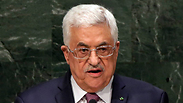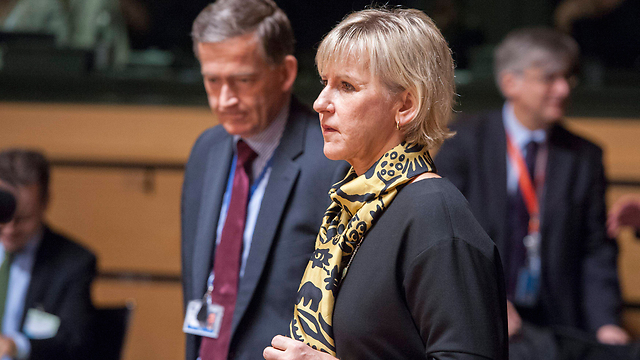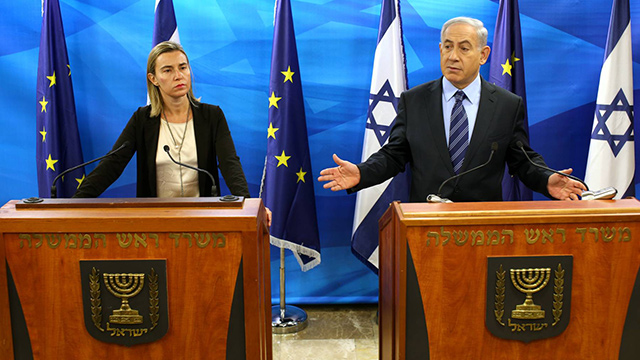
A number of the United States' key European allies are threatening to follow the decision of the Swedish government and unilaterally recognize a Palestinian state if efforts are not made to renew the peace talks between Israel and the Palestinians, the Wall Street Journal reported Friday, basing the claim on comments made by top US and European officials.
“We’re not going to wait forever,” the WSJ cited a senior European official as saying. “Other European countries are poised to follow Sweden,” he added.
American and European officials warn that a failure to attempt continuing direct talks between Israel and the Palestinians will result in a further deterioration of tensions in the area, particularly in Jerusalem, the West Bank and the Gaza Strip.
According to the report, US Secretary of State John Kerry met with Palestinian and Arab officials in recent days to discuss the current situation in Jerusalem and the continued deadlock in the peace process.
Last Thursday, Sweden's center-left government on Thursday officially recognized the state of Palestine, becoming the first major European country to do so.
The EU member country joined only two other Western European countries – Malta and Cyprus – that have officially recognized a Palestinian state.
Swedish Foreign Minister Margot Wallstrom said the Scandinavian country had decided on the move because the criteria of international law required for such recognition had been fulfilled.
"There is a territory, a people and government," she told reporters in Stockholm.
Wallstrom said she hopes Sweden's "excellent cooperation (with Israel) would continue" nevertheless and that the decision would be met in Jerusalem "in a constructive way."
Israel was quick to condemn Sweden's move, however.
Foreign Minister Avigdor Lieberman described it as "a miserable decision that strengthens the extremist elements and Palestinian rejectionism."
He added: "It's a shame that the government of Sweden chose to take a declarative step that only causes harm."
The 28-nation European Union has said it would recognize a Palestinian state "when appropriate," and has urged that negotiations to achieve a two-state solution be resumed as soon as possible.
Foreign Ministry spokesman Paul Hirschson said Israel's ambassador to Sweden was being recalled for consultations but declined to say how long he would remain in Israel.
Hanan Ashrawi, a senior Palestinian official, welcomed the move by Sweden, a European Union member, as "a principled and courageous decision."
"It is our hope that other EU member states and countries worldwide will follow Sweden's lead and recognize Palestine before the chances for a two-state solution are destroyed indefinitely," Ashrawi said.
Israel says Palestinians can gain independence only through peace negotiations, and that recognition of Palestine at the UN or by individual countries undermines the negotiating process. Palestinians say Israeli Prime Minister Benjamin Netanyahu isn't serious about the peace negotiations.
The latest round of US-brokered talks collapsed in April. American officials have hinted that Israel's tough negotiating stance hurt the talks, and Netanyahu has continued to settle Israelis in the West Bank and east Jerusalem.
More than 550,000 Israelis now live in the two areas, greatly complicating hopes of partitioning the area under a future peace deal. The two territories and the Gaza Strip are claimed by Palestinians for a future state.
US State Department spokeswoman Jen Psaki said the US supports Palestinian statehood but added it can only come through negotiations between Israel and the Palestinians that resolve status issues and end their conflict.
"Some countries (are) responding to the lack of a resolution of a peace process out there," she said.
Wallstrom, the Swedish foreign minister, said she had anticipated Israeli criticism against Sweden's decision.
"It happens that ambassadors are recalled for consultations. It is part of the diplomatic toolkit," Wallstrom said. "I am convinced that both our countries have an interest in maintaining and strengthening our good bilateral ties."
Associated Press and Reuters contributed to this report.


















